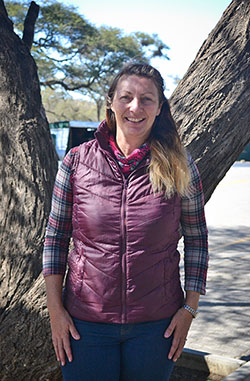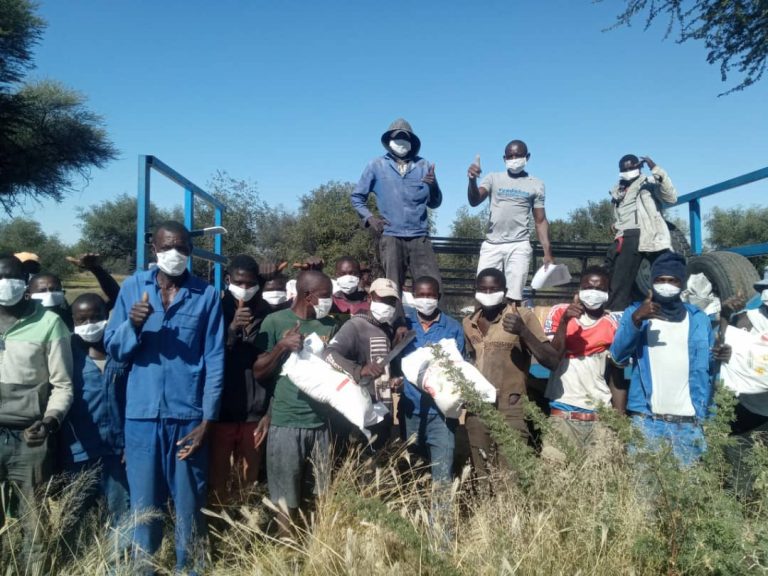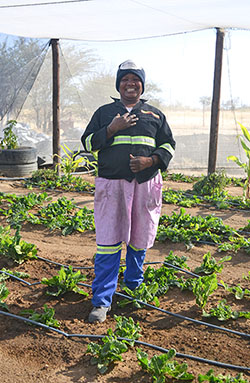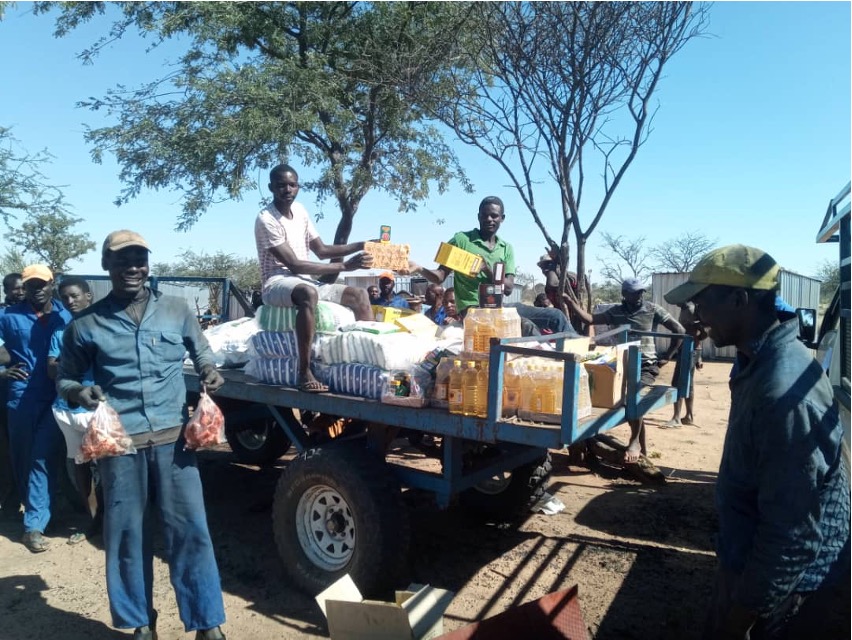How Fairtrade is Improving the Lives of Workers in the Midst of a Pandemic
~

Fairtrade, the logo we see on our favourite coffee and chocolate, claims to be about tackling the injustices of conventional trade, which traditionally discriminates against the most vulnerable. Here in Namibia, a group of charcoal harvesters have seen first-hand the benefit of being associated with such a global support organisation, especially during a global pandemic.
“Fairtrade aims to make sure that the primary producer is benefiting from the product that they make. Fairtrade focuses on the ethical treatment of people. It’s about the producers or harvesters”, says Ian Galloway, the Managing Director of Jumbo Charcoal.
Jumbo Charcoal, with operations just outside of Okahandja, is one of Namibia’s largest exporter of barbecue charcoal for many years. They export to the Mediterranean, Central Europe and the United Kingdom. Cecile and Heiko Doll produce charcoal for Jumbo Charcoal. They have been Forest Stewardship Council (FSC) certified since they began their operations and have been Fairtrade certified since 2011.
Cecile and Heiko, together with their teams of harvesters, are considered nomadic charcoal producers, meaning they do not own the land they produce on. They either lease land or are hired by the farm owner to produce charcoal on their land. Harvesters target encroacher species in accordance with the FSC approved management plan, to ensure the process is environmentally sustainable.
How Fairtrade Benefited Farm Workers in the Time of COVID
As Ian explains, “it is a prerequisite for Fairtrade that our farmers are FSC certified”. FSC being an independent, non-governmental organisation, established to promote the responsible management of the world’s forests.
According to Cecile, “we started in 2006 with charcoal and from the beginning we were FSC certified. In 2011 Fairtrade approached us, since we were one of the oldest charcoal producers in Namibia. They came to the farm and they have a checklist you must comply with concerning policies and labour practices. There are certain conditions and rules that you must adhere to.” Cecile goes on to explain that, “Fairtrade really helped us this year especially with COVID-19 and the lockdowns, which came quite suddenly. We were on the farm and couldn’t load our charcoal because the factory was closed. The region was locked down and we had to get special permits to get rations to the workers, who couldn’t go home because of the lockdown and couldn’t sell their charcoal. It was quite difficult, but then Fairtrade asked if there’s something they can do to help. They made funds available for food for rations for these guys during the lockdown, which really helped. So for us it’s a huge benefit to be part of Fairtrade.”
As Ian explains, “During the lockdown, the farmers had many workers on the farms, and they weren’t really producing, so the committee gave money to keep the rations going. That was a really good project, it also helped make sure the workers didn’t have to build up too much debt.”

Some of the Benefits Received by Workers Through Fairtrade
Fairtrade is driven by consumer buying power, as Ian explains, “one of our customers is Fairtrade Certified, and the co-op is in England. So every bag of charcoal we sell to them, we get a little bit of money back. That money comes into a bank account, that is managed by a Worker’s Committee, elected by the workers. They decide what to spend the money on.”
The money collected through this initiative is intended for projects that will uplift the socio-economic conditions of the charcoal harvesters and is therefore driven by the needs of the harvesters themselves. Listing some of the tangible benefits the workers at the Jumbo Charcoal Packing Plant have received, Ian includes, “They are doing adult literacy classes in Walvis Bay. We’ve got 70 people in the packing plant there and they are doing adult literacy. Here at the packing plant (outside Okahandja) we have a kindergarten; the bicycles for the workers; a vegetable garden. It’s a very nice garden, and the workers get lunch from it every day.”

Paulina, the woman in charge of the garden at Jumbo Charcoal, proudly shows us around her productive vegetable site, and adds that “the workers will be eating fresh spinach today.”
The Workers’ Committee not only selects projects for themselves but have chosen to improve socio-economic conditions of those around them too. Ian explains that a recent project included a roof and a waiting area that was built at the local clinic. This development was done with the elderly in this community in mind, who used to have to wait outside in the sun for their doctors’ appointments. Another recent project included fixing toilets at a local school in the town, whilst yet another included water points for the local community.
Cecile too, has a list of benefits that they have been able to provide to their workers, thanks to their commitment to being a part of a global workers standards organisation. “Our guys used to stay in tents. We used the premiums we got from Fairtrade for housing to improve their living conditions. We got 50 houses for the first project. It helped us a lot because now they have a permanent residence. They also have protection from insects and snakes or against the cold. These houses are also quite easy to move. We have a truck that we load them onto to move them to the next site.”
Cecile goes on to explain that, “in the latest project, there was a need for beds and mattresses. So now each guy with a house has got a mattress on his bed. The guys decide themselves what is the most important thing that they need or what we can use the premium for”.
Ian adds, “They put in solar panels, solar lights at the workers houses. They have beds. We welded three hundred beds, and these have now been distributed to those farms. Everyone has got a bed now.”
The Benefits Fairtrade Created
Cecile says she is happy with their decision, to adhere to best practice in sustainability and fairness guidelines, “I would definitely recommend being part of Fairtrade to other farmers, because it really improves the conditions for the guys on the farm.”
She adds, “I think the benefits are being able to give a more secure working environment to our people. Also, in this kind of charcoal work, you often have people moving around, trying different farms, but our workers stay with us on a permanent basis. We renew their contracts each year, and I think it’s because they are happy here, they are secure, there’s nice housing.”

Cecile continues, “we used to struggle, there was always a turnover of new staff, that you must train from the beginning. But now they always come back, this makes it easier for us too, we can stay in constant production. It’s FSC and Fairtrade that created this for us”.
Fairtrade standards have created an environment of empowerment for charcoal producers in Namibia, where farmers are able to effectively take care of their workers, especially in times of extraordinary circumstances.
Further sources:
FSC. 2018. Turning Sustainable Charcoal into Money. Accessible from https://www.youtube.com/watch?v=nj8Acpk258g
FSC Danmark. 2019. Together we are FSC – Taimi’s Story. Accessible from https://www.youtube.com/watch?v=nj8Acpk258g
[wpfilebase tag=file id=139 /]

